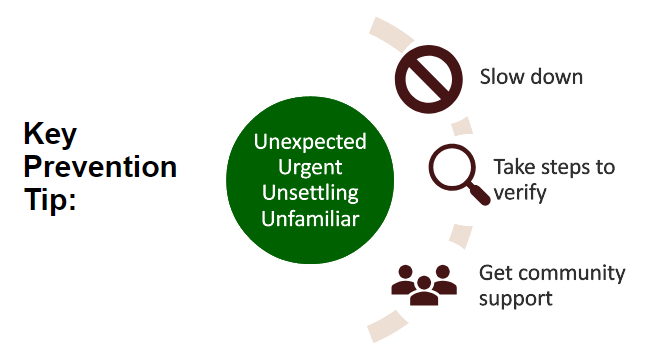By Amrutaa Vibho, AGO Intern
With the changing of the leaves and the shorter days, fall brings a host of seasonal activities and purchases. Whether it’s Halloween costumes or season passes to ski resorts, consumers will be looking to save money on their seasonal purchases. However, this season is also ripe for scams. Here are some tips to help you avoid falling for seasonal scams and schemes.
Beware of counterfeit or knockoff Halloween costumes. When searching online for a deal, beware too-good-to-be-true prices – it could be a trick! Unscrupulous retailers may list costumes at a discount to get you to fall for a listing using stolen photos, then send you a cheap imitation costume instead of the real thing. Avoid this tactic by buying in-person or from a trusted online retailer.
Skiers looking for deals on lift tickets: Watch out for steep, third-party discounts, which could be a sign of fraudulent tickets. Buying tickets from trusted resorts and standard channels is the best way to avoid scams.
Drivers preparing for the winter season may be spooked by the price of snow tires. When searching for a deal, do your research! Sellers offering “too good to be true” prices, subpar, and worn winter tires aren’t heroes. Avoid getting tricked by inspecting tires before you drive away.
Finally, as you plan your holiday vacations, don’t fall for counterfeit family vacation packages. While it is possible for sales to either inflate or be lower on some days than others, prices that are completely undervalued and look overly convenient could be a scam. Avoid holiday disappointment by purchasing directly from the business or online at their official website.
Remember these tips:
- Research Before You Buy
- Use Secure Payment Methods
- Check the URL before clicking: Hover over links to see the actual URL. (look for “https://” in the URL)
- Be Cautious with Personal Information
As always, contact the Consumer Assistance Program to report scams and get help. Call 1-800-649-2424 or email AGO.CAP@vermont.gov.
Join us in the fight to be #ScamAware and #StopScamsVT. Share this with someone you trust.

